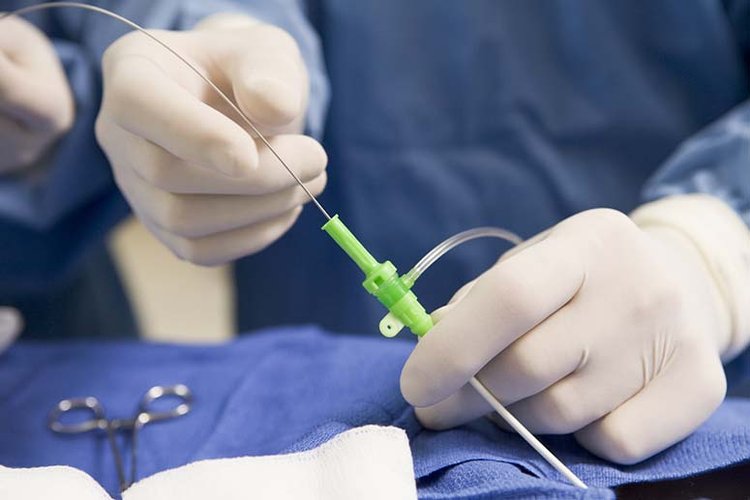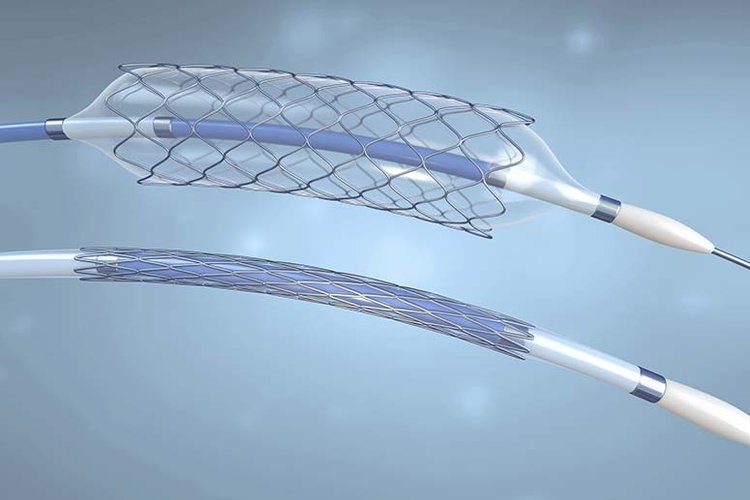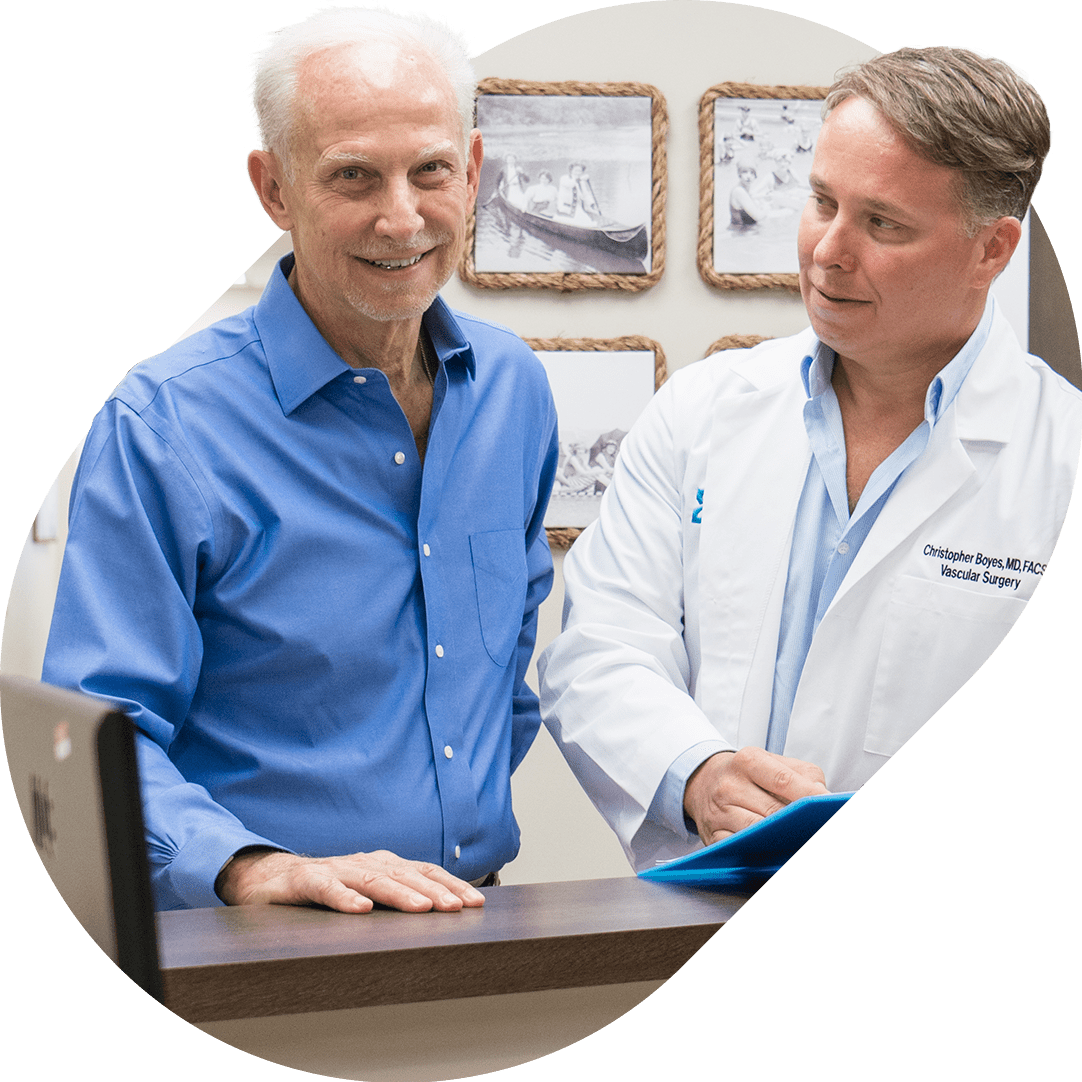Endovascular surgery means a procedure that is performed inside a blood vessel. Modern medicine offers several types of these minimally invasive techniques to treat conditions which previously required traditional open surgery or were untreatable. These can range from preventative to critical procedures. Endovascular surgery offers patients many advantages over traditional open surgery.
Routine endovascular surgery is a minimally invasive procedure as it does not require the cutting of the skin. The entry point involves a catheter inserted into a vein or artery, often little more than what is required to draw blood from a patient.
This type of entry means that endovascular techniques are performed with local anesthesia, greatly reducing the risk, recovery time, and post-procedural complications for patients. These modern medical techniques have resulted in more outpatient procedures, less pain, minimal blood loss, reduced heart stress, shorter recovery, and fewer hospitalizations.

A catheter is threaded through a blood vessel to treat or prevent a disease in the blood vessel. The catheter serves as a small conduit used to employ a range of techniques to repair blood vessels or open, unblock, and redirect blood flow.
The advantages are evident in the range of treatments the method provides. Here are some of the medical problems treated through endovascular surgery:
These are some common endovascular surgeries performed through minimally invasive techniques, either individually or in combination.
Opening or removing blockage from a blood vessel has several remedies depending on the circumstances. Angioplasty is a common procedure involving the inflation of a balloon-like device to open the passageway. Endarterectomy and atherectomy procedures remove plaque from the wall of a blood vessel.

Stents are inserted through a catheter. These small metal or plastic mesh devices expand when inserted into a vessel to keep the passageway open for unimpeded blood flow.
Grafts are tubes that can be inserted to allow blood flow through or around damaged portions of a blood vessel.
Varicose veins are regularly treated through outpatient endovascular procedures. The leading method is VenaSeal™, which injects a medical adhesive into a diseased vein causing it to close and divert blood flow to nearby healthy veins.
Incredible advances have led to groundbreaking endovascular techniques to treat aneurysms, which are weakened or bulging sections of blood vessels. These most often occurs in the aorta, brain, abdomen, or knee area and can be very serious medical conditions. Aneurysms are often treated with Endovascular Aortic Repair (EVAR) or a similar aneurysm surgery.

To guide the precision of these procedures deep inside the blood vessel, ultrasound and fluoroscopy are used jointly or individually to inform the surgeon of the condition, position, and procedural outcome.
Although not without risk, endovascular surgery is becoming more commonplace as a safer alternative to traditional and invasive procedures when the conditions are right for it.
In South Florida, Dr. Christopher Boyes is a noted expert in endovascular surgery, providing surgical services for the Jupiter Medical Center, the Palm Beach Gardens Medical Center, and his private practice, Coastal Vein and Vascular Specialists. He is available for consultations and second opinions when it comes to your vascular health questions.
Resources:
Endovascular Surgery, Top Doctors United Kingdom
https://www.topdoctors.co.uk/medical-dictionary/endovascular-surgery
What Is Endovascular Surgery?, Sherry Christiansen
https://www.verywellhealth.com/endovascular-surgery-5100836
Modern Endovascular Therapy, Matthew Blecha MD & Vivian Gahtan MD
https://pubmed.ncbi.nlm.nih.gov/33225390
Endovascular Aneurysm Repair, University of California San Francisco Dept. of Surgery
https://vascularsurgery.ucsf.edu/conditions–procedures/endovascular-aneurysm-repair.aspx
Use of Ultrasound to Improve Vascular Access, Dave Fornell (Editor)
https://www.dicardiology.com/article/use-ultrasound-improve-vascular-access

Subscribe to our newsletter
© Copyright 2023 Coastal Vein & Vascular | All Rights Reserved | Privacy Policy | Powered by Cord Media